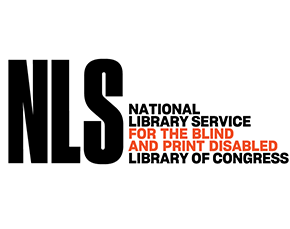Sharing Sources: NLS for the Blind and Print Disabled, Library of Congress
by INELDA
 NATIONAL LIBRARY SERVICE FOR THE BLIND AND PRINT DISABLED, LIBRARY OF CONGRESS
NATIONAL LIBRARY SERVICE FOR THE BLIND AND PRINT DISABLED, LIBRARY OF CONGRESS
The National Library Service for the Blind and Print Disabled (NLS), Library of Congress, was established by an act of Congress in 1931 to serve blind adults. Over the years the program has grown, and in 1966 services expanded to include individuals with other physical disabilities that prevented reading regular print. Today any “resident of the United States or American citizen living abroad who is unable to read or use regular print materials as a result of temporary or permanent visual or physical limitations may apply for service.”
The NLS catalog contains more than 281,000 book records that include braille books and braille music scores and 207,000 “talking books,” more commonly known as audiobooks. These can be accessed in multiple ways depending on the service needs, including: magazine subscriptions; the online service and app Braille and Audio Reading Download (BARD); playback equipment loans; and musical scores and books. The program also provides access to currency readers.
The service accepts applications from both individuals and institutions, such as nursing homes, hospitals, and rehabilitation centers. These larger institutions can hold deposit collections to provide ready access to their patients. For end-of-life doulas working within a home environment or at a long-term care facility, access to the NLS library may enhance a client’s end-of-life experience through literature and song. The service is free of cost to readers. Materials are available for individuals of all ages, from preschool onward.
The program is appropriate for clients whose vision is 20/200 or less, clients who are unable to read, those who may be unable to use standard printed material, and those who may have a perceptual or reading disability and are unable to read printed works. Individuals who have a temporary disability may qualify for service on a temporary basis. Veterans who are blind or have a physical disability and who have been honorably discharged from the armed forces of the United States receive special priority to services.
At its inception the program partnered with 19 libraries in the network. Today the network has expanded to 55 regional libraries, 26 subregional libraries, and 16 advisory and outreach centers serving all 50 states, the District of Columbia, Puerto Rico, the U.S. Virgin Islands, and Guam. In 2019 the United States joined the Marrakesh Treaty, allowing NLS to assist patrons in requesting accessible materials in a wide range of languages from other libraries around the world.
